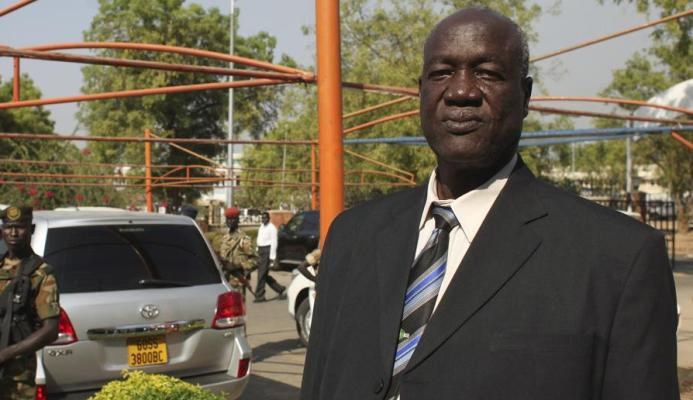South Sudan vows radical reforms in security sector
October 5, 2017 (JUBA) – The South Sudanese government on Thursday said it would now embark on radical reforms in the security sector, insisting that carrying out the necessary reforms would bring build public confidence in the institution.

“The key to our negotiating credibility will be whether we succeed in reforming our security sector. I have been saying and I will repeat again here that the cutting edge for our security reform strategy is whether we succeed in reforming the security sector. In many areas, police are, along with teachers, the face of the state, the government employees are the people the citizens are most likely to encounter. When they extort money from travelers and collect money from shopkeepers and landlords, the legitimacy of the state is infected. Corruption depletes resources. This is especially damaging to those on the front line where shortages of ammunition, equipment, fuel and even food have been reported,” explained Juuk.
According to the minister, creating ghost names either in the police or military means a depletion of forces, which is not obvious until a crisis occurs.
“Appointing people at mid and senior ranks on the basis of payments or political connections undermines leadership, especially if those individuals consider their posts to be dual use, for making money, alongside their regular duties. As for those in the lower ranks, it is difficult to imagine why they would fight and die when they see the leadership enriching itself”, stressed the defense minister.
As part of the review of military strategy, Juuk said both President Salva Kiir and the leadership of the defense and other security sector officials have agreed to take critical step to improve the institution.
The national police and the national security force are more likely than the army to be on the front line, guarding the population against attack. Yet corruption continues to bedevil it, draining resources and diminishing morale.
Both men, president Kiir and his defence minister now appears persuaded by the situation to believe that reform in the security sector, eliminating or at least reducing corruption – is central to turning the war against immorality and to gain back public confidence in the institution.
The minister made these remarks while speaking at the Royal Palace Hotel where stakeholders came together to review and amend Police Service Act, 2009, Prisons Service Act, 2011, Wildlife Act, 2009 and National Security Service Act, 2015 as required by the peace deal.
Juuk said the parties to the 2015 peace agreement should exert efforts to expedite the process.
“The review of the entire documents related to the security sector is the utmost priority and this is because there is urgent need to accelerate and ratify all the amendments and make them fundamental laws,” he said.
The minister emphasized the need to transform the security forces into professional and discipline forces in South Sudan.
Meanwhile the deputy chairperson of Joint Monitoring and Evaluation Commission (JMEC), Augostino S.K. Njoroge told the stakeholders that the committee has adopted consultations with all stakeholders including security institutions.
He reiterated that the committee is done with constitutional amendments, Political Parties Act and Elections Act. “As you are aware NCAC (National Constitutional Amendment Committee) is mandated to draft amendments to the security laws including the SPLA Act, Police Act, National security Act, Prison Act, and Wildlife Act to confirm them into the agreement,” Njoroge said.
“The committee will therefore consider your input and where necessary revises the proposed amendments before it corporate them into draft bills to be presented to the minister of justice and constitutional affairs for onward transmission to the council of ministers and transitional legislative assembly for enactment as required by the peace agreement”, he added.
(ST)
